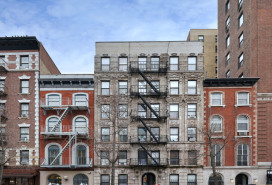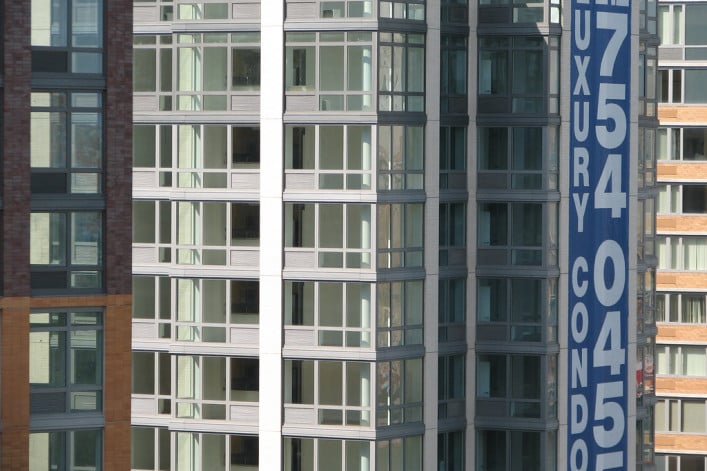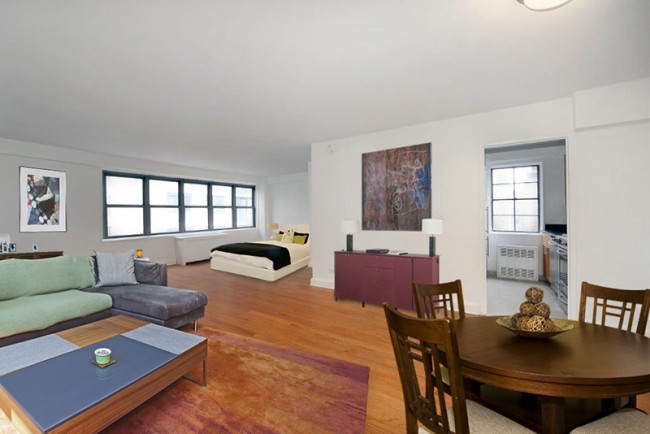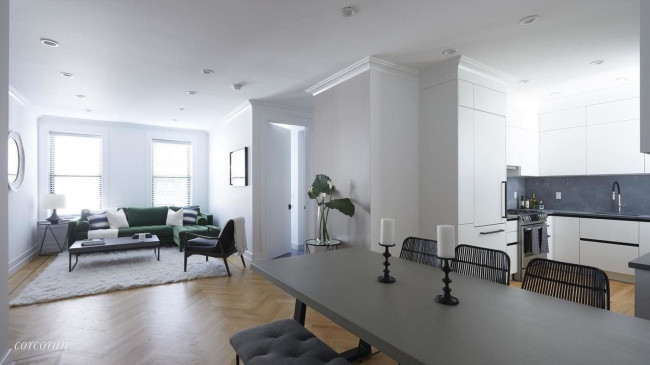In a co-op or condominium, who are the "sponsors" you always hear about?
For many New York buyers, so-called "sponsor units" are some of the most desirable options in the city, in part because buying directly from a building's sponsor generally allows you to skip the typical interview process you'd have to go through to purchase, particularly in co-ops. (Though sponsor units do have their downsides, as well.)
But who is this mythical sponsor you're buying from, and who will you be contending with on the board? Rather than some shadowy, Oz-like figure behind the curtain, most sponsors are simply the developers who built or converted the building, formed into an LLC. When a building is constructed or converted from a rental into a co-op or condominium, the sponsor takes responsibility for selling off the apartments in the building, and will often retain a number of them as investments.
"From the law's perspective, the sponsor is the person who brings all the pieces together (the contractor, the architect, etc.) and offers the finished product to the public," explains real estate attorney Jerry Feeney. "You can't just create a condo and offer it to the public generally. You have to comply with the law and write an offering plan. And then you offer the apartments to the public as the sponsor, and the public will buy them from you as a sponsor."
Don't be afraid of co-ops in NYC
"Co-ops are generally 10% less expensive than condos. Their rules are designed to protect the value of your apartment and ensure your neighbors are financially sound," says Matthew Steer of SteerKelly Team at Keller Williams. "As your broker, it's our job to make sure you qualify for the building you're interested in. We have a 99.9% success rate of getting buyers board-approved." Get in touch with us >>
Similarly, in existing buildings (as opposed to new construction), whoever is responsible for the conversion from a rental to a co-op or condo generally becomes the sponsor. "It's not as common anymore, but it used to be that if someone took a rental building and turned it into a co-op, they were the sponsor," explains real estate attorney Neil Garfinkel. "In this day and age, you could probably use the term developer interchangeably with sponsor, in that it's usually the developer creating a new condominium, then they stay on as the sponsor."
So technically speaking, a building's "sponsor" is most likely to be an LLC made up of multiple parties from the developer's company, rather than one lone person who owns everything.
"The sponsor is usually an LLC [owned by multiple people]," Garfinkel explains. "These are big, big projects."
Keep in mind that sponsors are often in control of the board, which can occasionally lead to diverging interests between sponsors and individual unit owners, for instance, if unit owners want an improvement that the sponsor doesn't want to spend money on, or if there's a defect in the building, but the sponsor wants to avoid litigation that might hamper their ability to sell off their remaining units.
In most buildings, sponsors only retain control of the board until they've sold off all their units. But in any case, the specific details of their role in your building should be laid out in the offering plan. "When someone buys into a building, it's very clear in the offering plan that the sponsor is going to maintain control of the building (and usually the board) until such time as they sell," says Garfinkel.
While it's sometimes considered a red flag for a sponsor to still be in possession of too many apartments in the building (say, 50 percent or more), whether this is cause for concern has to be determined on a case by case basis, says Corcoran's Deanna Kory. (A sponsor in possession of a lot of units wields the power to sell them to whoever they want without board approval, in a co-op, or simply keep them as rentals, creating a more transient population in the building than buyers may have originally bargained for.)
"[The number of sponsor-owned units] is not something that is a means of determining if they’re a bad sponsor," says Kory. "I’ve seen buildings where people buy in and there’s a high number of rental units, and the building turns out just fine." The key factor, says Kory, is the sponsor or developer's track record in past buildings.
"If they have a reputation in other buildings as not being a great landlord, that would be one sign for knowing they're not going to be a good partner in this conversion," says Kory. Similarly, if other buildings they own have a large majority of units they've kept as rentals (rather than selling off), that could be a bad sign (though also an opportunity to snag a potential deal, if you're willing to live in a building that's mostly rentals).
You can do your own Googling about the developer, but also, Kory says, an experienced broker should be able to give you the inside track on your sponsor's reputation in the industry, and failing that, she says, so should an experienced real estate attorney. Either way, you'll want to have a sense of who you're buying into a building with, because ultimately, sponsors hold much more power than individual owners.
You Might Also Like


























